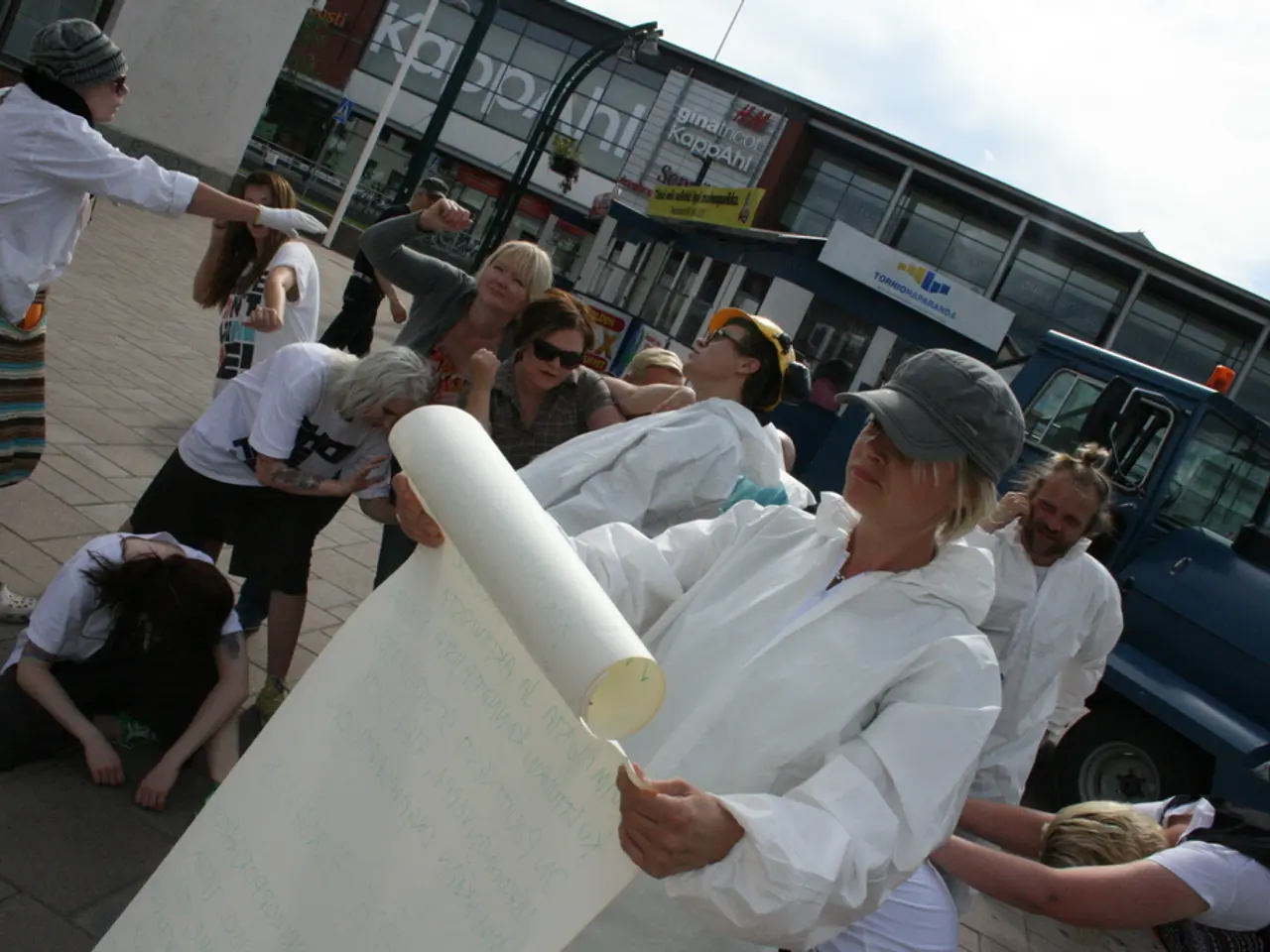Hamas negotiators in Cairo discussing detailed plan for comprehensive agreement on Gaza situation
In the midst of ongoing discussions in Egypt, Israel has declared a plan to reoccupy Gaza, casting a shadow over the negotiations. This decision has drawn international condemnation and doubts about its effectiveness in stopping Hamas and freeing hostages.
The proposed Arab force, made up of personnel from Egypt, Jordan, and possibly Gulf Arab nations, would operate under the UN umbrella in Gaza, ensuring that the terms of any deal are observed. The force is set to remain in Gaza until legislative and presidential elections are held. Jordan is also involved in the proposed deal, providing training for Palestinian security and intelligence operatives.
The Egyptian argument for their involvement is that Egypt's Rafah land crossing with Gaza is controlled from the Palestinian side by Israel, and nothing can go through the crossing without Israel's advance approval. Egypt has taken part in air missions to deliver humanitarian supplies to Gaza over the past two weeks.
However, the Israeli plan has not been met with unanimous approval. Hamas, which has accepted an Egyptian proposal for a ceasefire and hostage release deal, has yet to receive a response from Israel. So far, only partial agreements have been reached, delaying a comprehensive resolution to the conflict and broader issues concerning Gaza's future.
The dispute between Egypt and Hamas erupted late last month over Hamas's criticism of Egypt's humanitarian efforts for Gaza. Hamas's aid arm, the Central Emergency Committee, has criticised Egypt for not doing enough to alleviate the humanitarian situation in Gaza. The accusations were publicly countered by Egyptian President Abdel Fattah El Sisi and pro-government pundits, who accused Hamas of being a tool of the Muslim Brotherhood.
The Gaza war was sparked by an attack led by Hamas against southern Israeli communities in October, 2023, resulting in the death of 1,200 people and the capture of another 250 hostages. The proposed comprehensive deal includes the release of all 50 hostages still held by Hamas, laying down and storage of Hamas's weapons under international supervision, governance of postwar Gaza and reconstruction, providing humanitarian aid to Gaza, and the departure of Hamas leaders from Gaza to live in exile abroad with their families.
The row between Egypt and Hamas has reportedly been ended by Turkish mediation led by Foreign Minister Hakan Fidan, but no details have been given. The US President, Donald Trump, has expressed doubts about any deal to end the war, stating that Hamas is unlikely to release Israeli hostages unless the situation in Gaza changes.
As the discussions continue, the future of Gaza remains uncertain, with the humanitarian crisis looming large and the possibility of further conflict a constant threat.
- The proposed Arab force, including personnel from Egypt, Jordan, and Gulf Arab nations, will operate under the United Nations umbrella in Gaza, ensuring that any deal's terms are observed.
- Jordan is also involved in the proposed deal, providing training for Palestinian security and intelligence operatives.
- Despite Egypt's involvement in air missions to deliver humanitarian supplies to Gaza, the dispute between Egypt and Hamas erupted over Hamas's criticism of Egypt's humanitarian efforts.
- The proposed comprehensive deal includes the release of all 50 hostages still held by Hamas, laying down and international supervision of Hamas's weapons, governing postwar Gaza and reconstruction, providing humanitarian aid, and the departure of Hamas leaders from Gaza to live abroad.
- The US President, Donald Trump, has expressed doubts about any deal to end the conflict, stating that Hamas is unlikely to release Israeli hostages unless the situation in Gaza changes.






